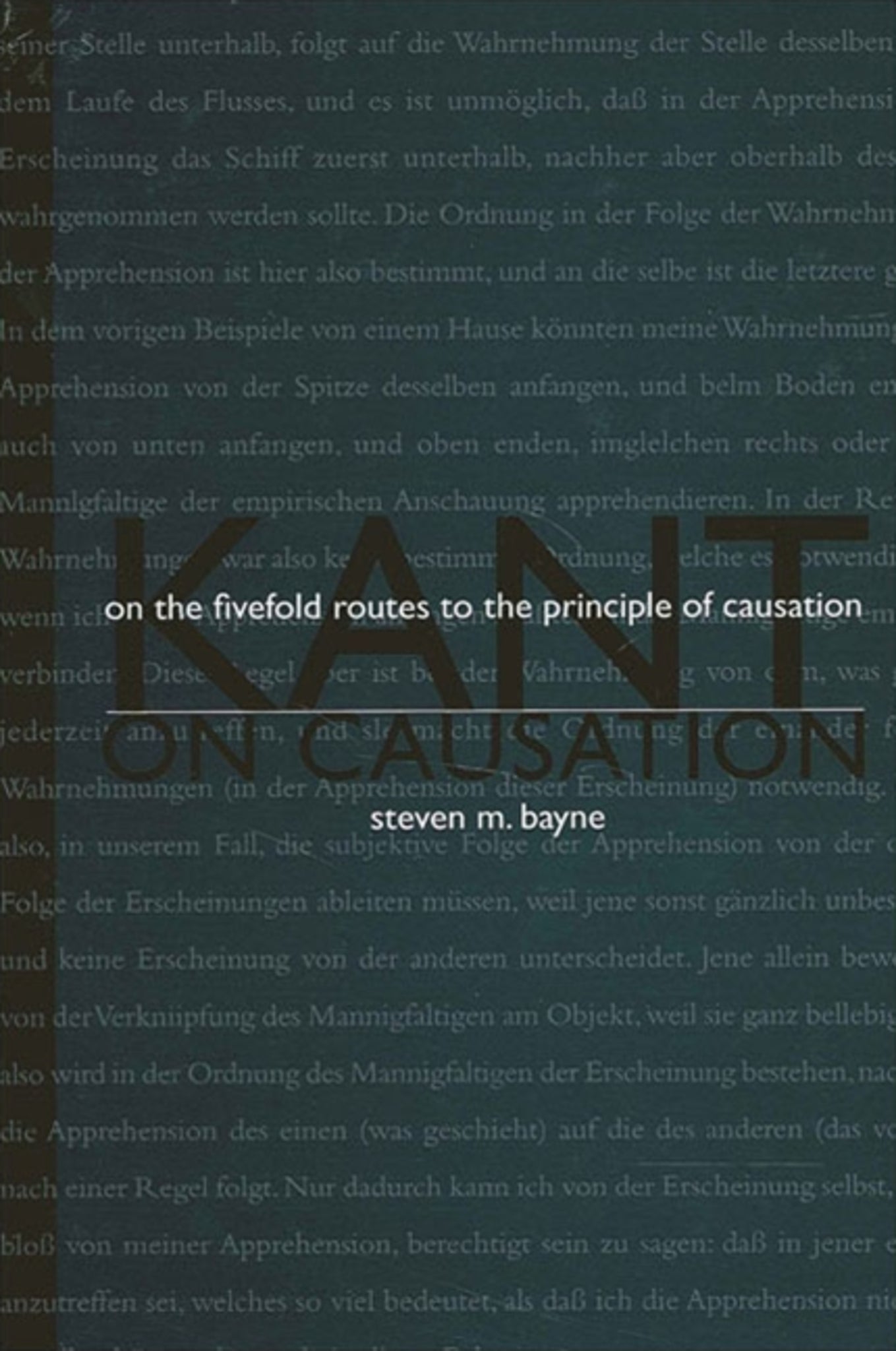We're sorry. An error has occurred
Please cancel or retry.
Kant on Causation

Some error occured while loading the Quick View. Please close the Quick View and try reloading the page.
Couldn't load pickup availability
- Format:
-
11 December 2003

An in-depth examination of the nature of Kant's causal principle.
Kant famously confessed that Hume's treatment of cause and effect woke him from his dogmatic slumber. According to Hume, the concept of cause does not arise through reason, but through force of habit. Kant believes this can be avoided through the development of a revolutionary new cognitive framework as presented in the Critique of Pure Reason. Focusing on the Second Analogy and other important texts from the first Critique, as well as texts from the Critique of Judgment, the author discusses the nature of Kant's causal principle, the nature of his proof for this principle, and the status of his intended proof. Bayne argues that the key to understanding Kant's proof is his discussion of objects of representations, and that it is his investigation into the requirements for an event's being an object of representations that enables him to develop his proof of the causal principle.


Acknowledgments
Introduction
1. Relationships
Concepts and intuitions
Kant's introduction to the problem of the Schematism and his introductory solution
Kant's true task in the Schematism
Leibniz
Hume
Leibniz, Hume, Kant, and applicability
The importance of the Schematism
A problem with Kant's account of the Schematism
The transcendental deduction and the principles
Principles of Understanding and Principles of Reason
Analogies of Experience
Kant and Hume
Hume's Doubt
Hume's reasons for doubting the possibility of demonstration
Transcendental proof and Kant's proof of the causal principle
2. The Causal Principle
The principle of the second analogy
Evaluation of Possible Interpretations of the Formulation of the Causal Principle
The Same-Cause-Same-Effect thesis
The Every-Event-Some-Cause thesis
3. The Fivefold Routes to the Principle of Causation
Possible Argument Strategies
Evaluation of Argument Strategies
The Veridical Strategy
The Event/Object Strategy
The Event/Event Strategy
The Justification Strategy
4. The Irreversibility Argument
Lovejoy's Position
Strawson's Position
Bennett's Position
Melnick's Position
Guyer's Position
The house, the ship, and irreversibility
5. Objects of Representations
The principle of the Second Analogy
Subject to a rule
Objects of representations and being subject to a rule
Irreversibility revisited: Are successions of appearances' subject to a rule?
An example for the official definition
Successions of appearances must be subject to a rule
Problems and Defense
The requirements for a succession of appearances being subject to a rule
Are my requirements too strong?
Are my requirements too weak?
Repeatability
Necessary Order
Textual Worries
Repeatability
Necessary Order and Necessity
Is this really a causal theory?
6. Hume Revisited
A brief review
Transcendental proof and the mistake strategy
A problem with Kant's transcendental proof and mistake strategy
The implications of this problem
Turning the copy thesis on its head
Problem: Drawing the distinction between a beginning of existence and a cause of existence
Final Status of Kant's Answer to Hume
Conclusion
On the Guide(s) to the Discovery of the Route to the Principle of Causation
The house, the ship, and irreversibility
The nature of the principle of the Second Analogy
Synthetic and a priori
Constitutive versus regulative
Objects of representations
Object of Experience Strategies
Bibliography
Index



